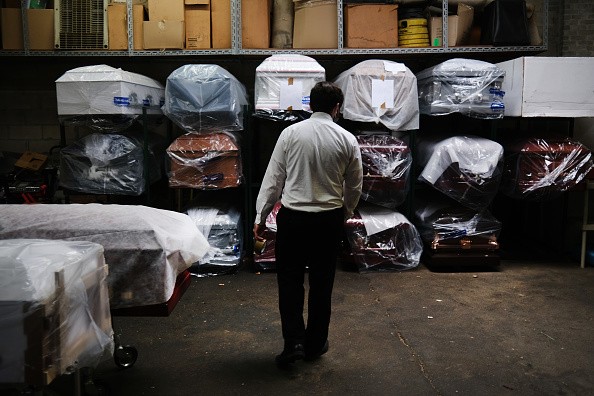Experts developed a new AI that could predict a person's death. Although it might sound creepy, its developers claimed that it uses accurate technology.

Geisinger Health System researchers created a computer algorithm that uses echocardiogram videos of the heart, which could help it predict a person's death chance within a year.
Developers claimed that it outperforms other medical predictors. These include the Seattle Heart Failure score and pooled cohort equations.
"We were excited to find that machine learning can leverage unstructured datasets such as medical images and videos to improve on a wide range of clinical prediction models," said assistant professor and study's senior co-author Chris Haggerty via Science Daily.
How the new AI death predictor works
This latest innovation is currently essential since imaging is important to treatment decisions in most medical specialties. Imaging also became one of the electronic health record's most data-rich components.

Also Read : Valve's Brain-Computer Interface vs. PS5 DualSense Controller; BCI Could be Gaming's Future
On the other hand, the developers used specialized computational hardware. This helped them to enhance their new machine learning model, training it on 812,278 echocardiogram videos collected from 34,362 Geisinger patients over the last ten years.
The researchers compared the results they acquired to cardiologists' predictions. They based their experiment on multiple surveys to check their AI's accuracy. After their study, the developers claimed that cardiologists' prediction accuracy was increased by 13% after they were assisted by the new artificial technology model.
"Our goal is to develop computer algorithms to improve patient care," said Alvaro Ulloa Cerna, senior data scientist in the Department of Translational Data Science and Informatics at Geisinger.
An AI that predict's COVID-19 patients' death?
On the other hand, another AI was developed that possibly predicts if the COVID-19 patient is about to die. The New York Post stated that it has a 90% prediction accuracy. The University of Copenhagen researchers, the ones who developed this artificial intelligence, gathered underlying medical condition data from 3,944 Danish coronavirus patients.
The group of researchers trained their computer program to identify the patterns developed in the patients' prior illnesses. Said research also aims to determine if a patient needs respirators 5 days ahead. By doing so, it can help doctors prepare the needed number of respirators and set priorities.
For more news updates about other innovations that can help during the ongoing pandemic, always keep your tabs open here at TechTimes.
This article is owned by TechTimes,
Written by: Giuliano de Leon.
ⓒ 2025 TECHTIMES.com All rights reserved. Do not reproduce without permission.




